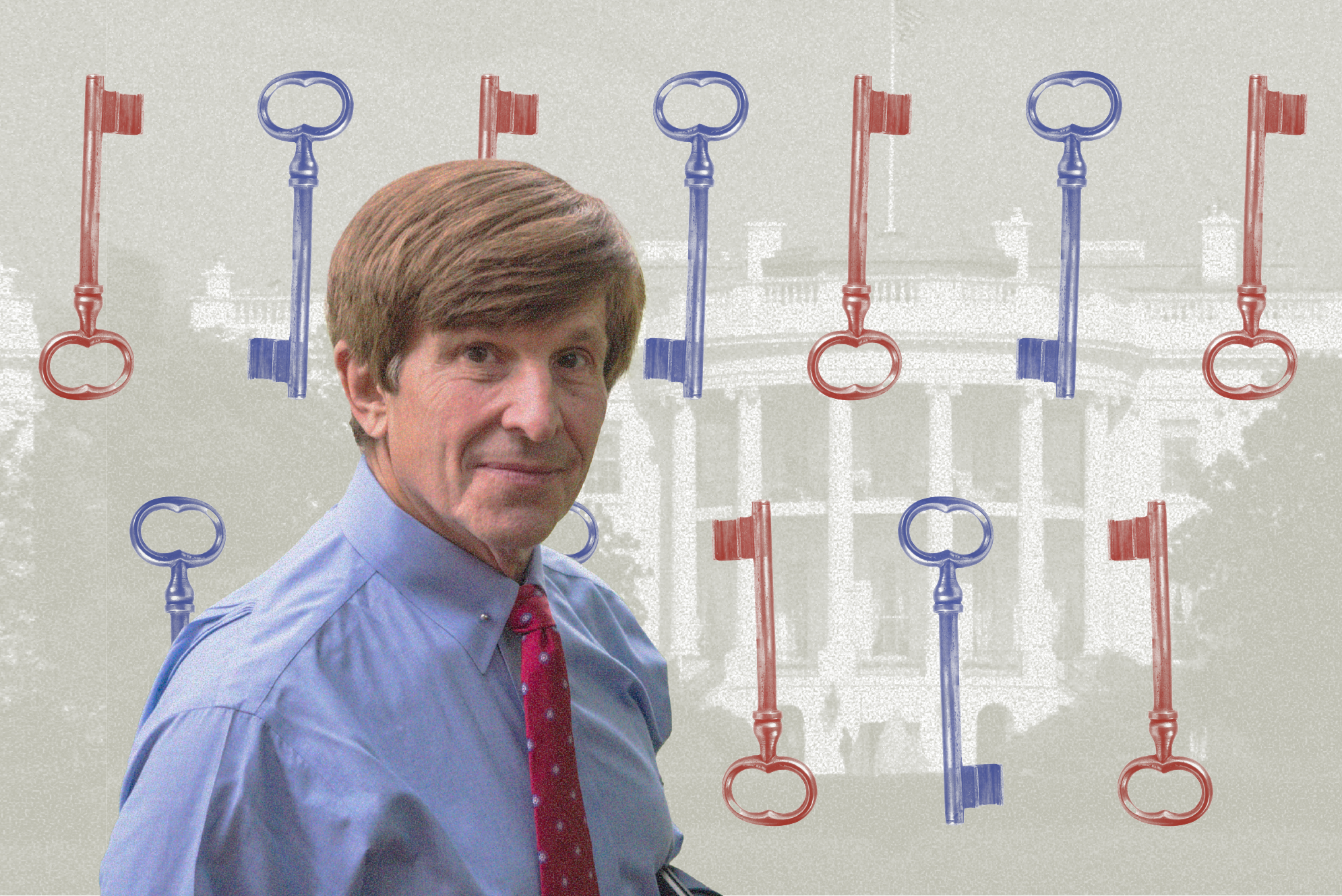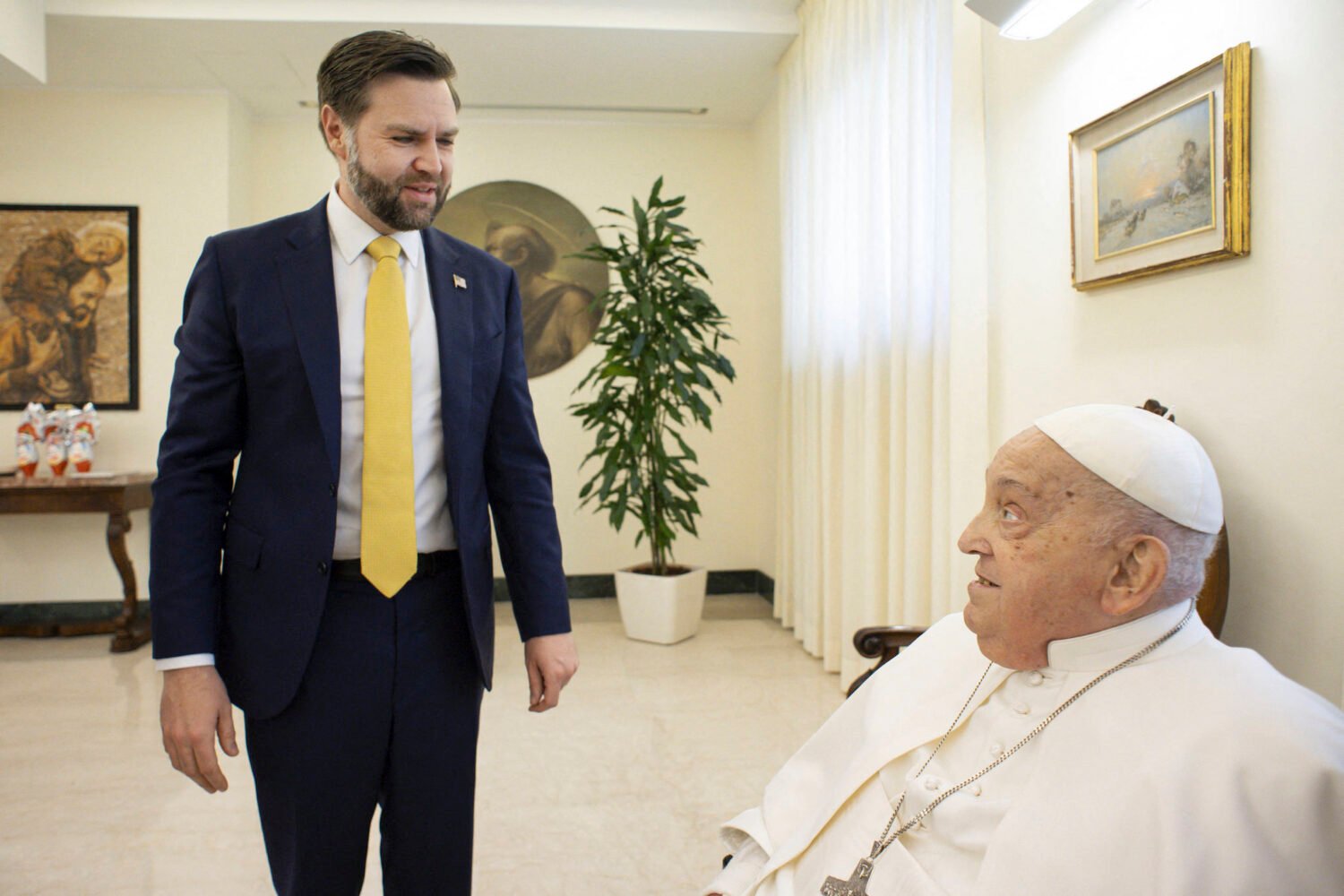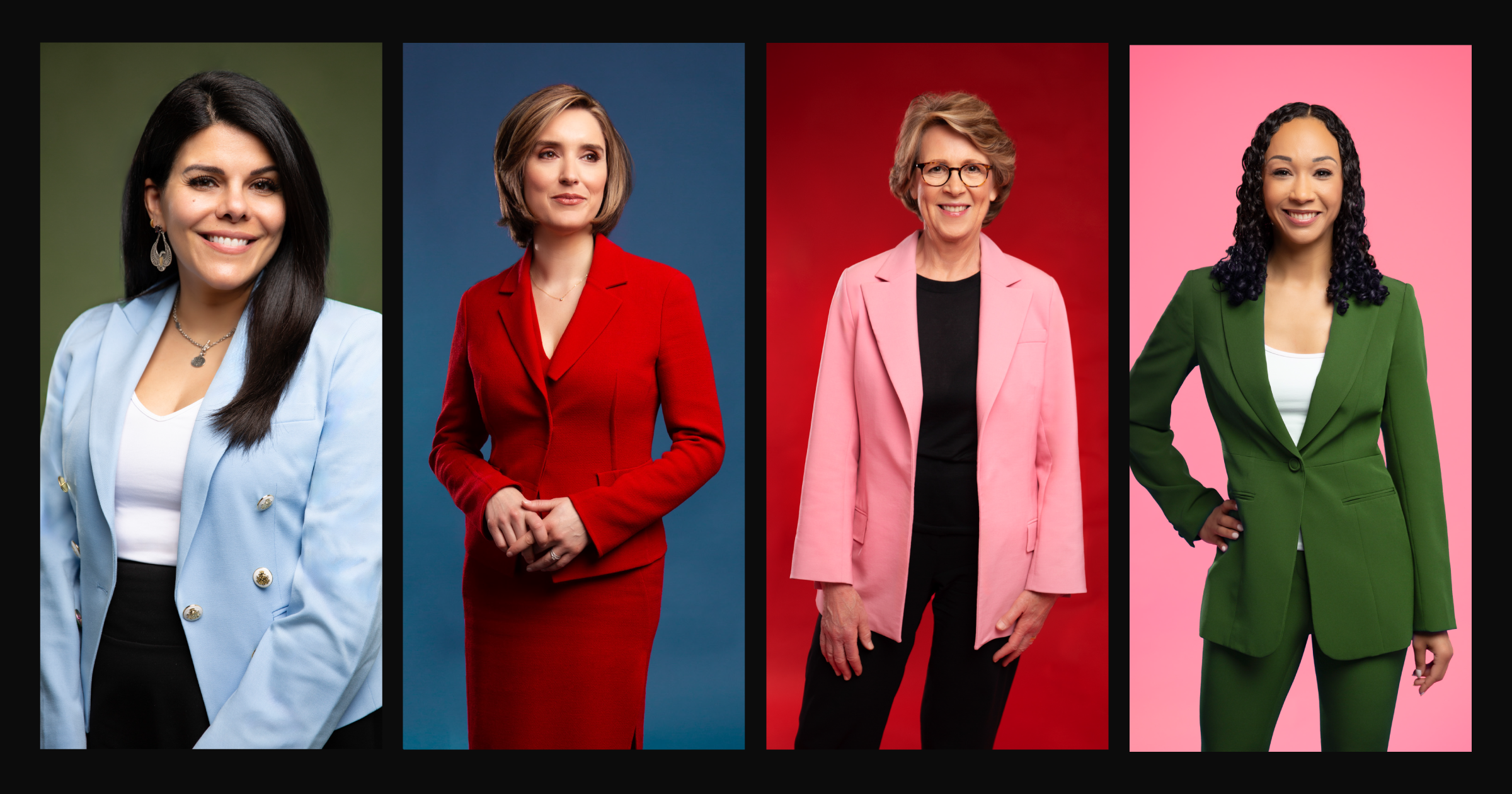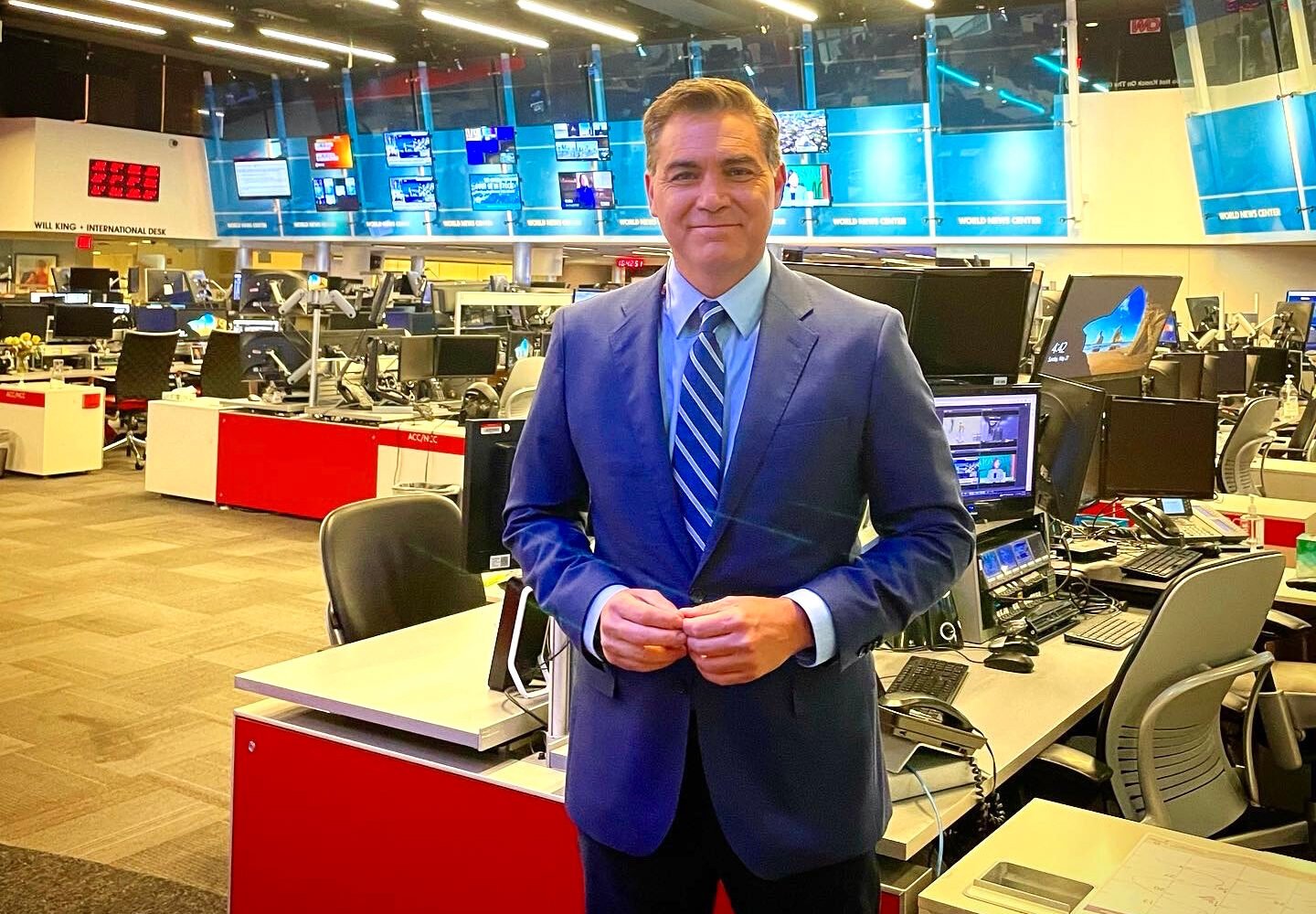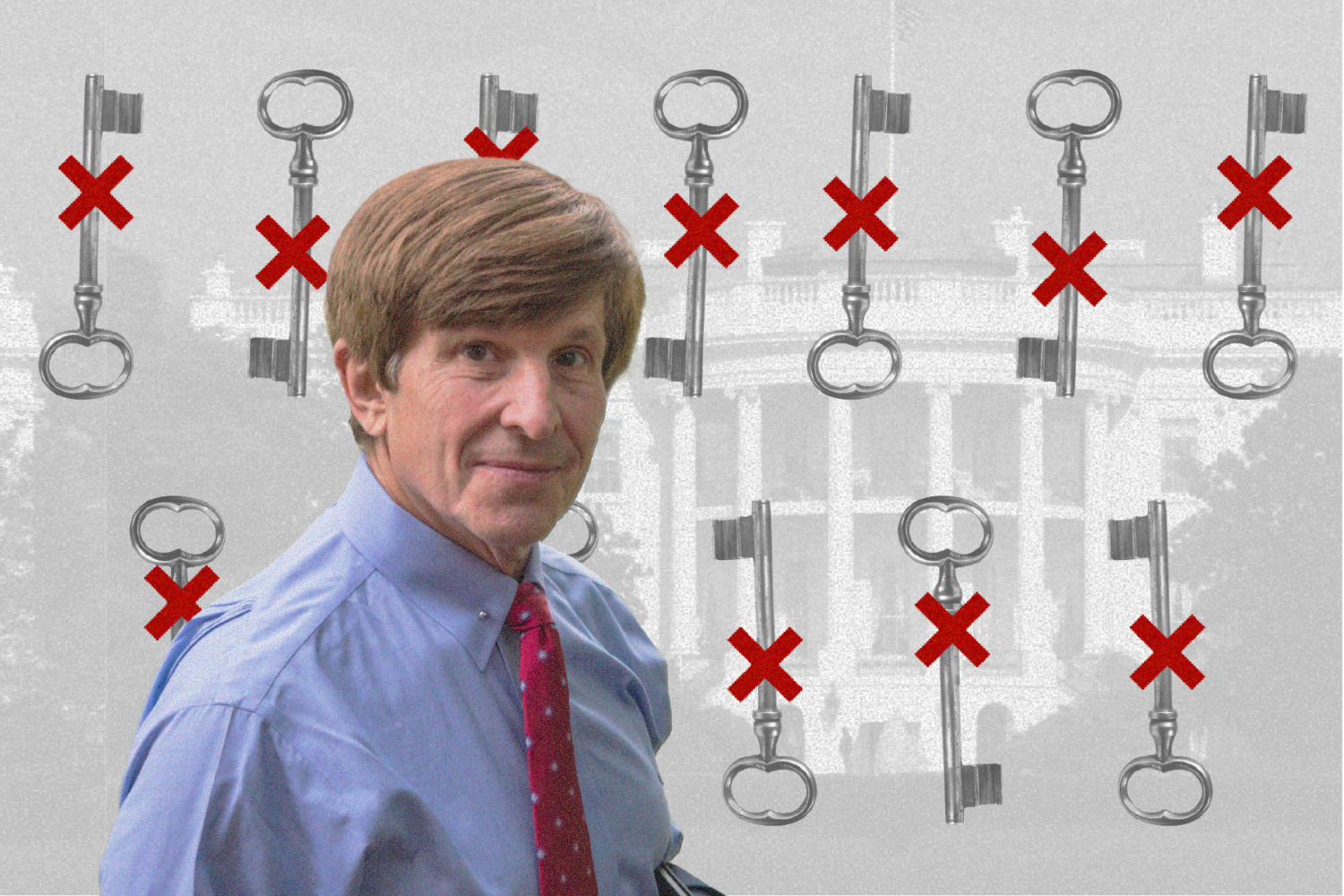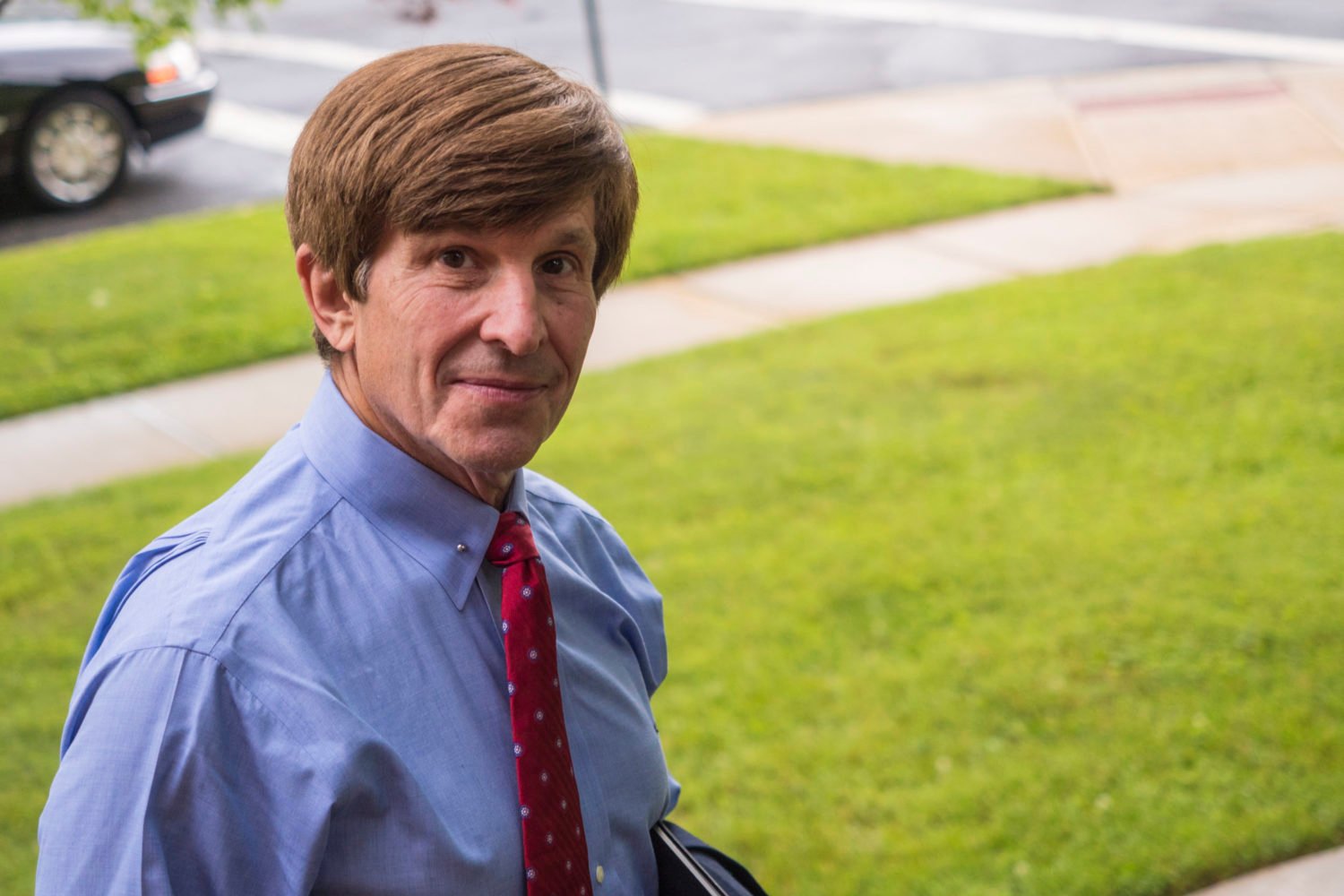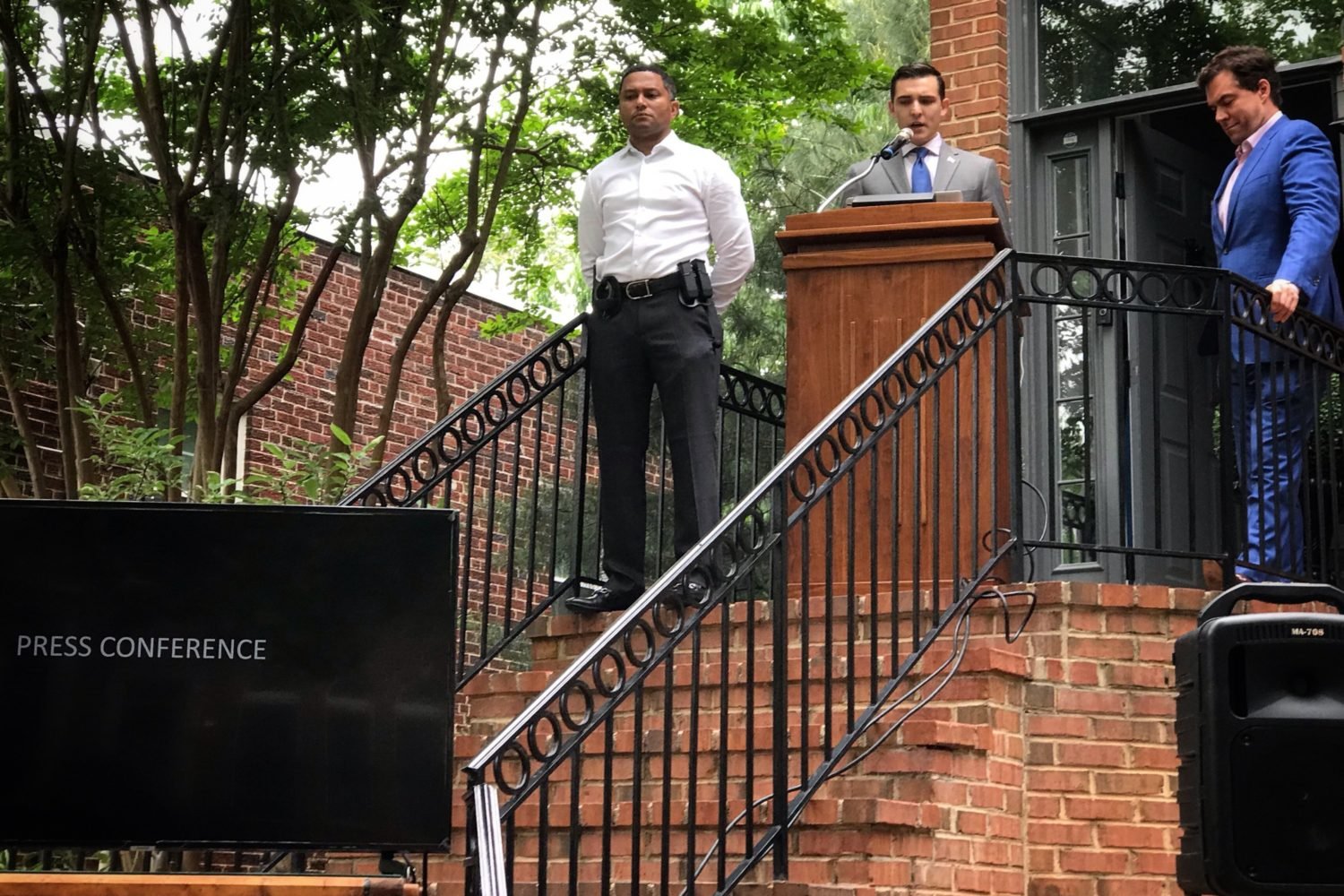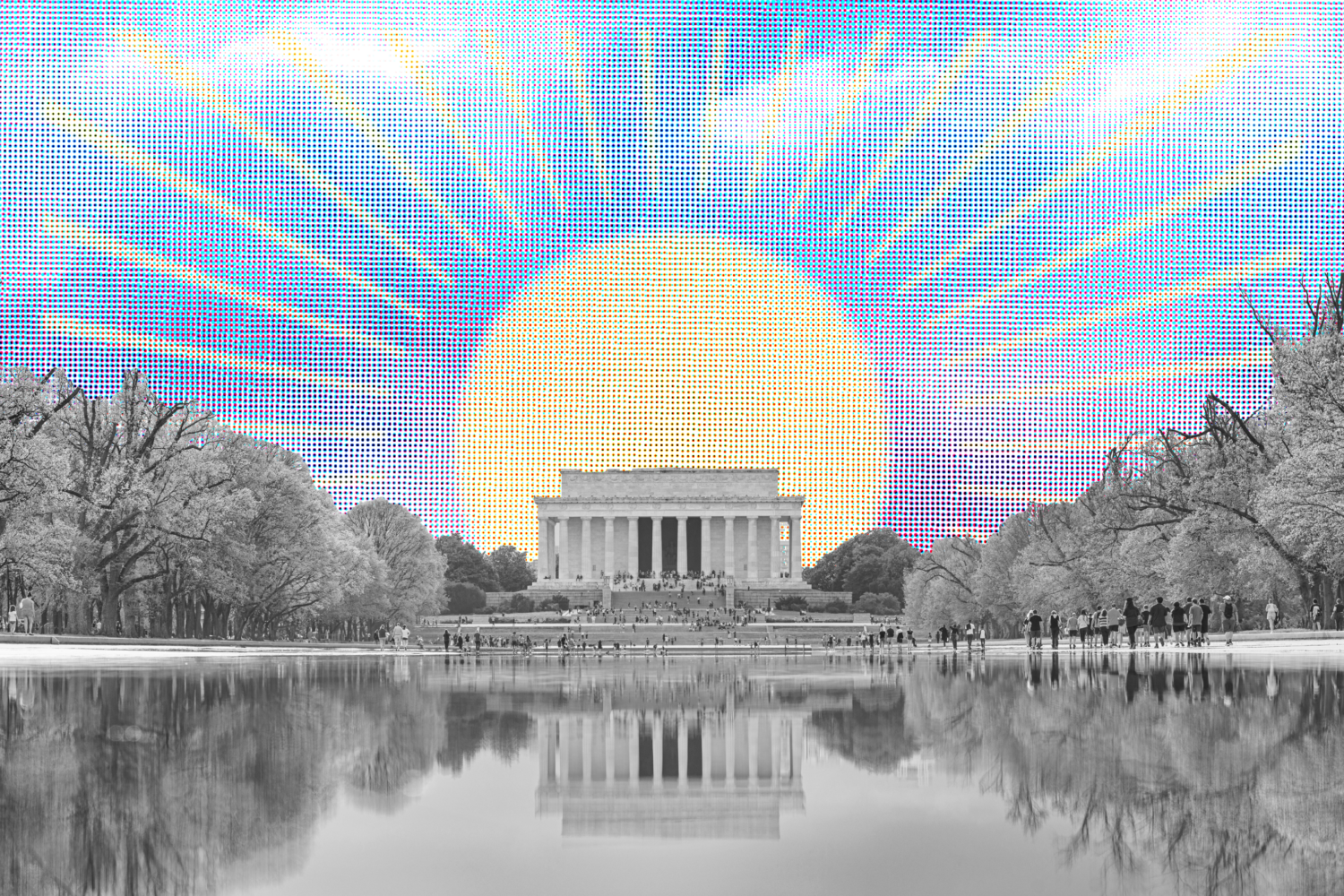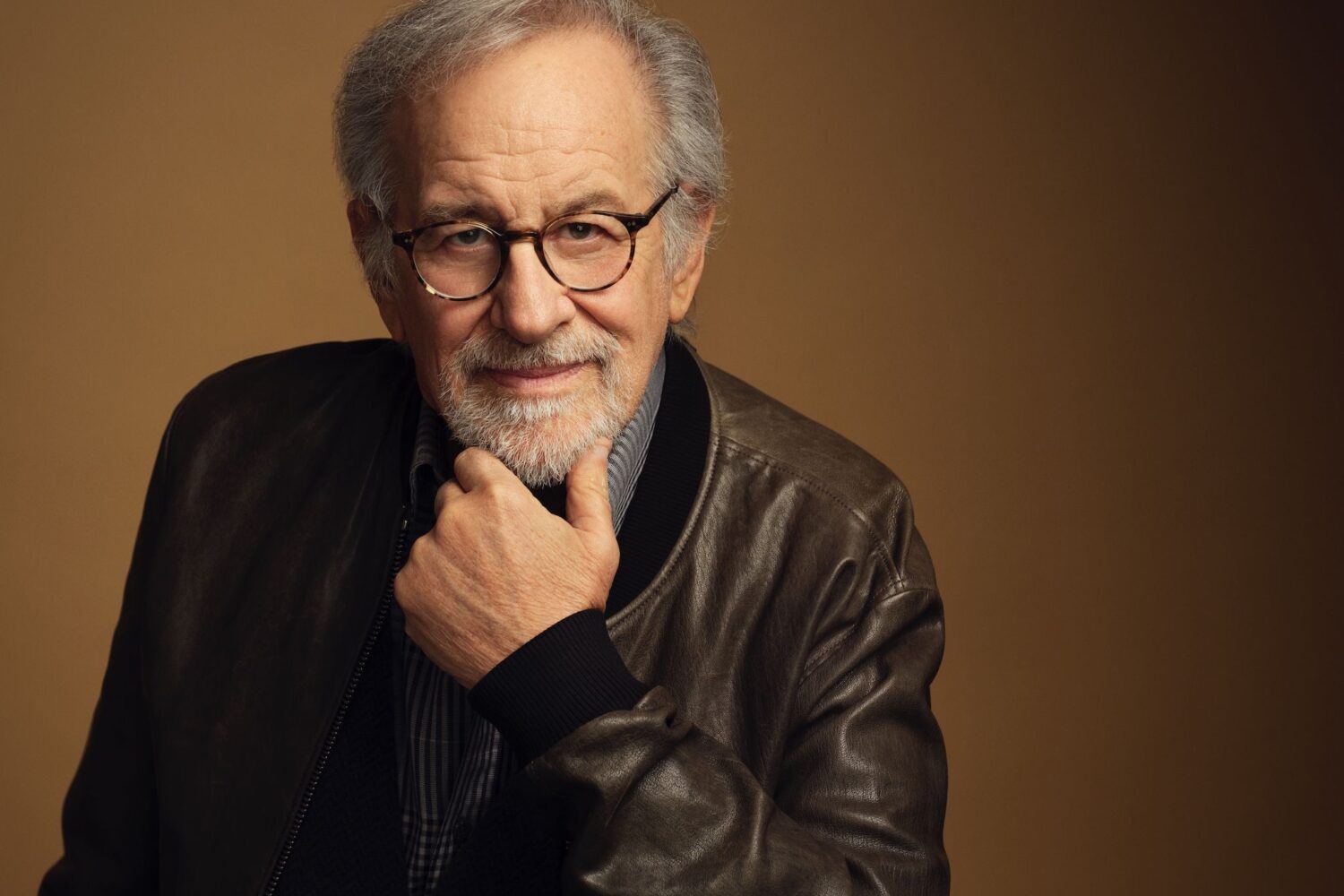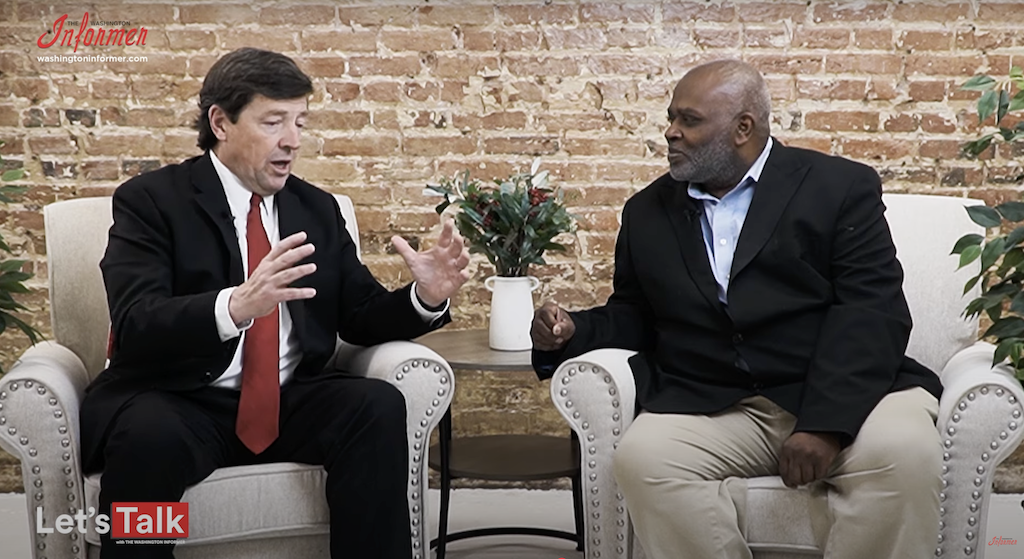American University professor Allan Lichtman released his quadrennial prediction for the presidential election Thursday via a snappy New York Times video that called him the “Prophet of Presidential Elections.” That’s because Lichtman, by way of his system of 13 questions, or “keys,” that determine his call, has correctly called every election except 2000’s, which was admittedly an odd one. This year, he expects Kamala Harris to win. Lichtman spoke to us via phone from the university.
I wanted to start by apologizing to you: We’ve never had you in our Style Setters issue, despite you having some of the best neckties in Washington.
Ha! Thank you. I owe that to my wife.
How long does your prediction process take? Do you work on it all at once, or is it a rolling process?
I do it throughout the four years. Sometimes the keys fall into place early. For example, my first prediction was of Ronald Reagan’s reelection in your magazine in April 1982, almost three years ahead of time, when America was in the grip of the worst recession to date since the Great Depression, when 60 percent of Americans said Ronald Reagan was too old to run again, and his approval rating was historically low. But the keys had fallen into place. I called the hard-to-call 2012 Obama reelection in 2010. But recently, probably because of the extreme polarization, the keys have fallen into place late.
If something were to change radically between now and November, is it possible that there could be a change in your production?
I mean, yeah, something absolutely catastrophic, unexpected can always happen. This idea of an October surprise is a big myth. I’ve always predicted my calls before that. But the two keys that could shift are the two foreign-policy keys: foreign military failure, foreign military success. Possibly, maybe, it’s unlikely you could get a ceasefire and hostage release, but it doesn’t matter. Even if both of those foreign military keys went against the White House party, they’re still only down a total of five keys. It takes six negative keys to predict their defeat.
Do the keys take the Electoral College into account? Or do they predict the popular vote?
You know, for most of our history, the two coincided, except there was a couple of exceptions as a result of strange things happening during Reconstruction and the transition to the so-called white-supremacist “Redeemer” governments. But in recent years, the popular vote has become irrelevant, because the Democrats pile up so many millions of extra votes in New York and California alone, which count for nothing in the Electoral College. That’s why in 2016, 2020, 2024, I just called the winners. There’s no point in looking at the popular vote. In fact, since 1992, you know how many times the Republicans have won the popular vote? Once, way back in 2004, narrowly.
But they have an advantage in the Electoral College, even though I’ve read an argument that it’s shrinking.
It’s hard to say. All of these swing-state polls are very unreliable. Of course, they’re small samples and the error margins are bigger than the margins between the candidates. The pollsters tell you their error margin is about plus and minus 3 percent. That’s pure statistical error. That’s the error you would get if you had a huge jar of green and red balls and you took a sample and estimated the percentage of green and red balls. But human beings are not red and green balls. Most of us don’t respond to pollsters. In 2016, the pollsters underestimated Republican voting strength. So, like generals fighting the last war, they tried to correct it. And recently, they’ve been underestimating Democratic voting strength. For example, in the marquee special election of 2024, to the seat previously held by the disgraced George Santos, the New York congressional seat, a poll taken right before the election had the Democrat up by one point. He won by eight points, exceeding the poll numbers by seven points.
Do you expect a similar overperformance by Democrats this November?
I do. I mean, you never know. But it would indicate that the polls are underestimating, based on actual election results, underestimating Democratic strength, just as they had previously underestimated Republican strength.
So your keys are an attempt to assert some fundamentals that outperform poll data?
That’s right. The keys tap into how presidential elections really work as votes up or down on the strength and performance of the White House party. And because I have 13 keys, I have a very wide range of indicators that help predict whether the voters are going to give the White House party four more years or not. The pundits have no scientific basis to their prognostications.
When I was preparing for this, I read some of those pundits, and some of them had argued that your keys are subjective, like the charisma one. I imagine you have a retort to that.
Do I ever. When I first developed the keys, the professional forecasters blasted me. I had committed the cardinal sin of subjectivity. And I explained the keys are not subjective. They’re judgmental. And historians make judgments all the time. Moreover, each key is very specifically defined in my book. And I’ve answered each question, each key, from 1860 on, so there’s a whole record that you have to be consistent with.
Now, you say something like charisma. Yeah, it may seem subjective, but it’s not. I define the key as one of those once-in-a-generation inspirational candidates who broadly appeals across party lines. Since 1900, the only ones who qualify are Teddy Roosevelt, Franklin Roosevelt, John F. Kennedy, Ronald Reagan, and Barack Obama. And Eisenhower qualifies because he was a national hero. And guess what? Except for Kennedy, who died in office, every one of them got a second term. Whereas more than half of the Presidents who didn’t meet the key lost for a second term: William Howard Taft, Jimmy Carter, George H.W. Bush, Herbert Hoover, Donald Trump.
Trump’s not charismatic? He brought a lot of new voters into politics.
I did not give Trump the key in 2016 or 2020 or 2024 because he doesn’t fit the model of a broadly appealing candidate. He appeals to a narrow base. His approval rating as President averaged 41 percent, one of the lowest ever in history. He lost two elections by a combined 10 million popular votes. Franklin Roosevelt and Ronald Reagan won elections with overwhelming landslides. So while you may think he’s a great showman, and maybe he is, that doesn’t matter: He doesn’t fit the definition of the keys of being broadly inspirational and building a cross-party coalition.
You argued earlier this summer that it was a mistake to drop Joe Biden from the ticket. How would he fare under the keys model? Would your prediction have changed if you were still the candidate?
I don’t answer hypotheticals. But let me say this: I was very critical of the Democrats for a couple of reasons. One, I thought it was just a horrible strategy to be openly and publicly trashing your sitting President and the candidate overwhelmingly voted on by the voters. Plus, I thought they were going to sacrifice two keys: It looked like they’d lose the incumbency key, obviously, and it looked like they were barreling toward a big party brawl, and they’d lose a second key, the contest key, which would put them in a very difficult position to gain reelection. But they got smart all of a sudden and grew a spine all of a sudden and united behind Harris, which saved the contest key. That meant they only lost one key. Plus, it turns out Harris probably has a positive effect on two other keys, the third-party key. With Harris in the race, voters didn’t have to choose between two old white guys. I hate to say that, being an old white guy myself, but we saw the fizzling of the RFK Jr. campaign. And she may have dampened social unrest because Biden is no longer front and center, the guy responsible for policies against which the protesters disagreed.
I know you have a lot more reporters to talk to today, but can I get on your calendar now to chat in 2028?
If I’m still around. I’m 77, so God forbid. [Laughs.]

